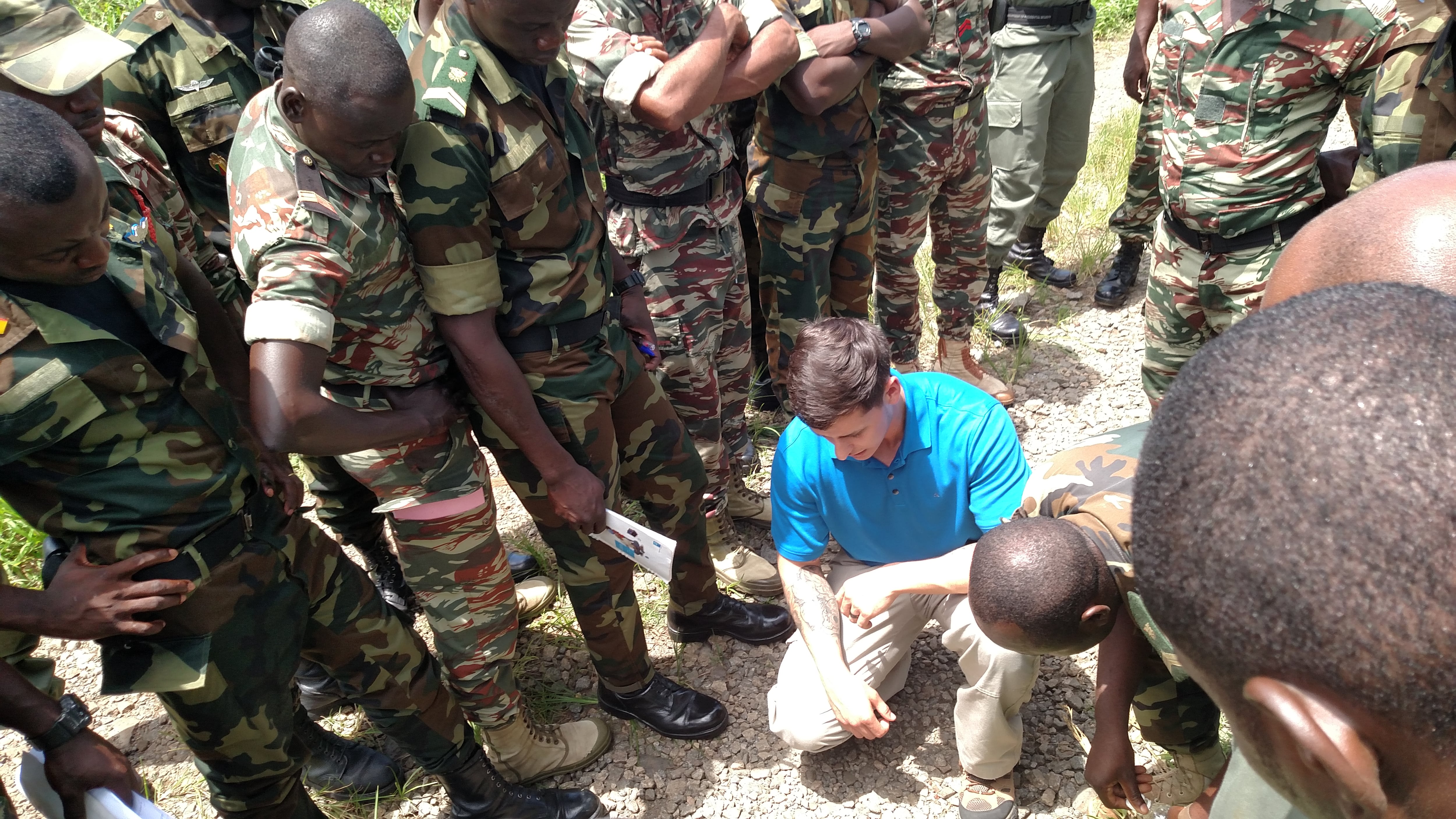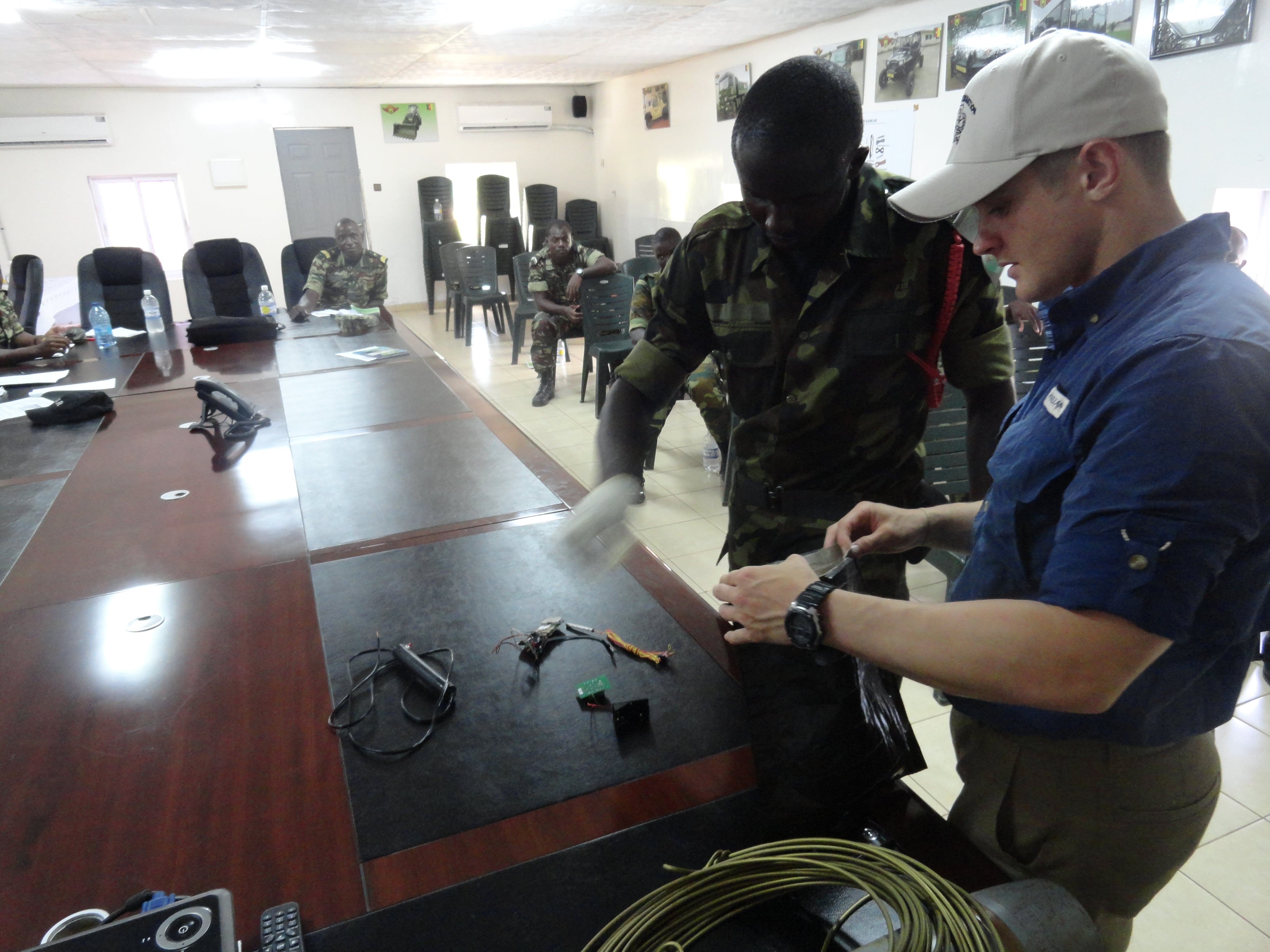Using lessons learned from Iraq and Afghanistan, the Army is helping its partners fight a growing IED threat across the African continent.
In the last 12 months, there were almost 1,000 improvised explosive device incidents, resulting in about 6,000 casualties, across Africa, according to officials from U.S. Army Africa citing United Nations and other open source websites.
Some of the heaviest activity has been in northern, eastern and central Africa, as groups such as Boko Haram, the Islamic State group and al-Shabaab step up their use of crude homemade bombs, officials said.
Seeing this growing threat, countries in Africa "began to ask for assistance," said Lt. Col. Anthony Barbina, engineer plans and operations chief for U.S. Army Africa.
"It's so crazy, because we're seeing a lot of things migrating into Africa," he said. "The African countries have seen how involved we've been in Iraq and Afghanistan and how much we've learned … and they're trying to tap into us and share some of our lessons learned."
This includes asking the Army for help with IED awareness training and counter-IED operations, he said.
"In certain countries, there has been a progressive increase [in IED activity] over time, which has led to the countries seeking out and asking for help to counter this threat," said Jeff Gliedman, an engineer current operation specialist and lead for U.S. Army Africa's counter-IED cell.

Spc. John Olivas demonstrates counter-IED procedures during a practical exercise with Cameroonian soldiers. The class is part of U.S. Army Africa's efforts to help its African partners combat a growing IED threat across the continent.
Photo Credit: Capt. Benjamin Weaver/Army
In response, U.S. Army Africa stood up a counter-IED fusion cell whose work focuses on helping partner nations recognize, react and respond to an IED threat.
American trainers help partner armies detect and render safe roadside bombs, teach them to conduct forensic exams on the devices, and train them to map IED networks in an effort to exploit or disrupt their activities.
They also incorporate counter-IED training into U.S. Africa Command's Accord exercise series, develop tailored counter-IED pre-deployment training for forces preparing to go into a certain area of operations, and provide so-called EOD backpacks filled with low-cost, basic tools such as metal detectors and ground probes.
"We're not looking at expensive, high-tech tools that are difficult to maintain," Gliedman said, adding that based on lessons learned in Iraq, "we were much more effective by putting people back on the ground" looking for IEDs.
One of the ongoing training missions soldiers are conducting is in Tunisia, Gliedman said. The soldiers are there as part of a multinational effort led by Tunisia's 61st Engineer Brigade.
"They knew they had a growing IED threat from the surrounding countries, whether it's from the south in Mali or a possible threat coming out of Libya," Gliedman said. "They started seeing an increase in IEDs, and they wanted to increase their capacity."
U.S. troops provide training on how to spot and defeat an IED. They also train the Tunisians on site exploitation, Gliedman said. This includes properly securing and documenting the scene of a blast, and correctly collecting any evidence, he said.
The Army also has soldiers in Cameroon, where they are helping provide IED awareness training to the country's infantry forces, who are working to counter Boko Haram, Gliedman said.
One key challenge in counter-IED operations in Africa is the vastness of the continent, Barbina said.
"In Iraq or Afghanistan, a lot of times the IEDs would happen in IED hot spots, places where you're kind of expecting it," he said. "But Africa being so large and having so many places that could be targets of attack, it's the element of surprise. You've got to be ready and attentive to the signs."

Capt. Benjamin Weaver mentors a Cameroonian engineer soldier in proper IED material collection techniques. The training is part of the Army's efforts to help the Cameroonian's fight a growing IED threat.
Photo Credit: Staff Sgt. Robert Elliot/Army
Gliedman said there's a "very distinct difference" between the work the Army is doing in Africa compared with what soldiers faced in Iraq and Afghanistan.
"In Iraq and Afghanistan, you had U.S. force presence out on the ground in partnership with both the Iraqis and the Afghans," he said. "For U.S .Army Africa, that condition is not available to us. We're not permanently present on the ground with them. Our engagement is more focused at the country's schoolhouses for a short period of time. We do not accompany them out on operations."
These parameters make it more difficult for the trainers, he said.
"That's one of the limitations we have, as far as being able to see and have access to the IEDs the partner nation would be experiencing," he said. "We have to rely on pictures and reports they can share with us."
Despite those limitations, the experts in the counter-IED fusion cell — both Barbina and Gliedman served as engineer soldiers in Iraq — said they are making progress.
"This is not high-cost training for us to provide," Barbina said. "And it's having big repercussions in a positive way right now."
The training is going so well that U.S. Army Africa is working to grow the number of EOD forces it can call upon to conduct training in Africa. A platoon of EOD soldiers from Fort Campbell, Kentucky, is currently regionally aligned to Africa for this mission, but the goal is to get approval for a company-sized element, Barbina said.
The training benefits both the American soldiers and the African partners, Barbina said.
"It builds both of our readiness," he said. "[U.S. troops] are doing their job, they're going forth to Africa, they're seeing a totally different environment, and they're working with our African partners. There's great information sharing with a focus on skills and techniques."
Michelle Tan is the editor of Army Times and Air Force Times. She has covered the military for Military Times since 2005, and has embedded with U.S. troops in Iraq, Afghanistan, Kuwait, Haiti, Gabon and the Horn of Africa.





